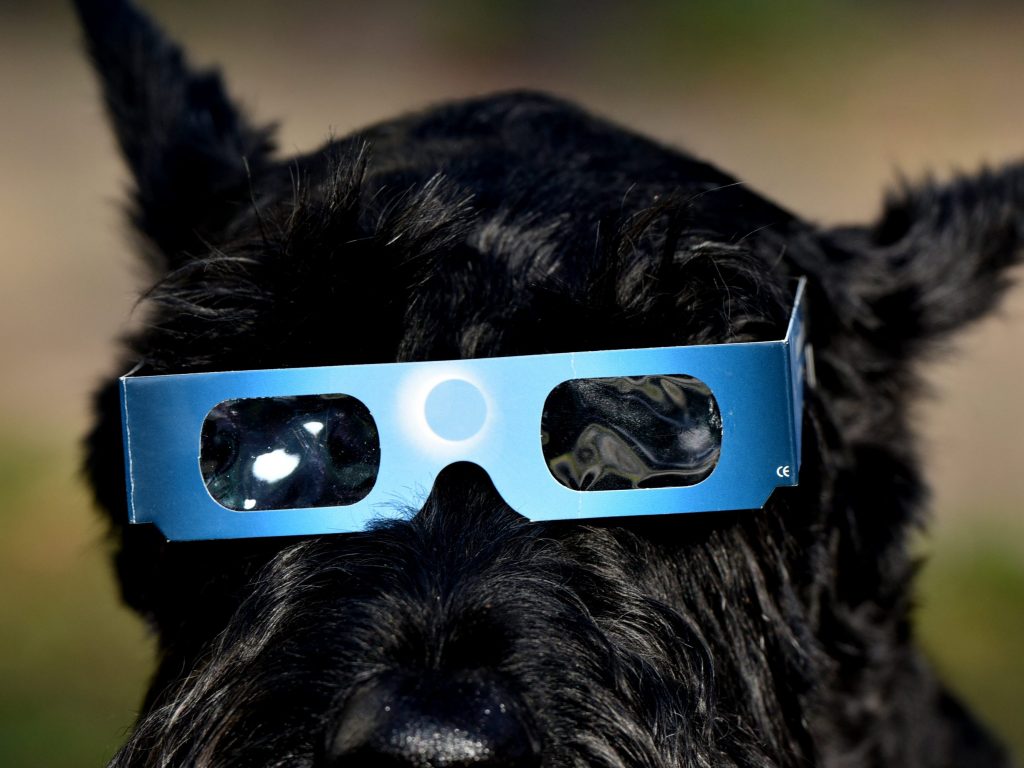In order to observe the darkness, it is essential to look at the sun with proper protection.
© APA / Ralf Hirschberger
A partial solar eclipse will occur in Austria on June 10. The celestial scene will have no effect on the environment.
More than six years later, it will see another solar eclipse in Austria on June 10. However, the current celestial view will not be as large an event as the partial solar eclipse in 2015.
An average solar eclipse twice a year
If the Moon covered a maximum of 63 percent of the solar disk at that time, this time it wouldn’t even be five percent. So it’s neither noticeably darker nor cooler, says Alexander Piccard of the Vienna Working Group on Astronomy (WAA).
In a new moon, the moon is close to the sun when seen from Earth. On average twice a year, the satellite at least partially covers the solar disk and a solar eclipse occurs. However, this cannot be seen everywhere on earth. In Vienna, there was the last partial solar eclipse on March 20, 2015, and the next eclipse after the current event will be – also partially – on October 25, 2022, after all with 30 percent coverage.
An impressive event is expected in 2026
Piccard told the APA that a partial solar eclipse on August 12, 2026 covering 87 percent of the area, “the highest value since 1999,” would be even more impressive. However, the whole thing happens exactly at sunset. A detour to Spain may come in handy, as this event can be observed as total darkness. In Vienna there was the last total solar eclipse on July 8, 1842, and the next eclipse wouldn’t occur until May 16, 2227.
Use proper monitoring protection, not home remedies
In the current partial solar eclipse, the moon will darken slightly in the sun between 11:52 a.m. and 1:28 p.m., with the largest eclipse reaching at 12:40 p.m. The Moon will then cover about 4.6% of the Sun’s surface. This means that darkness will not have any effect on the environment: it will not be significantly darker and not significantly cooler. In total, the sky game in Vienna takes 1 hour and 36 minutes.

In order to observe the darkness, it is essential to look at the sun with proper protection. With the naked eye, you need eclipse glasses or a sun filter film, which are available from specialty astronomical retailers. Piccard warns against using “home remedies” like rescue blankets, soot glasses, CDs or the like. If you want to observe with binoculars or a telescope, a solar filter film should be used in front of the telescope aperture.

“Food practitioner. Bacon guru. Infuriatingly humble zombie enthusiast. Total student.”







More Stories
King Charles sets a law to deport British people to Rwanda…
The tax burden remains high compared to OECD countries
EU Parliament waves more flexible environmental standards in agriculture – Agriculture